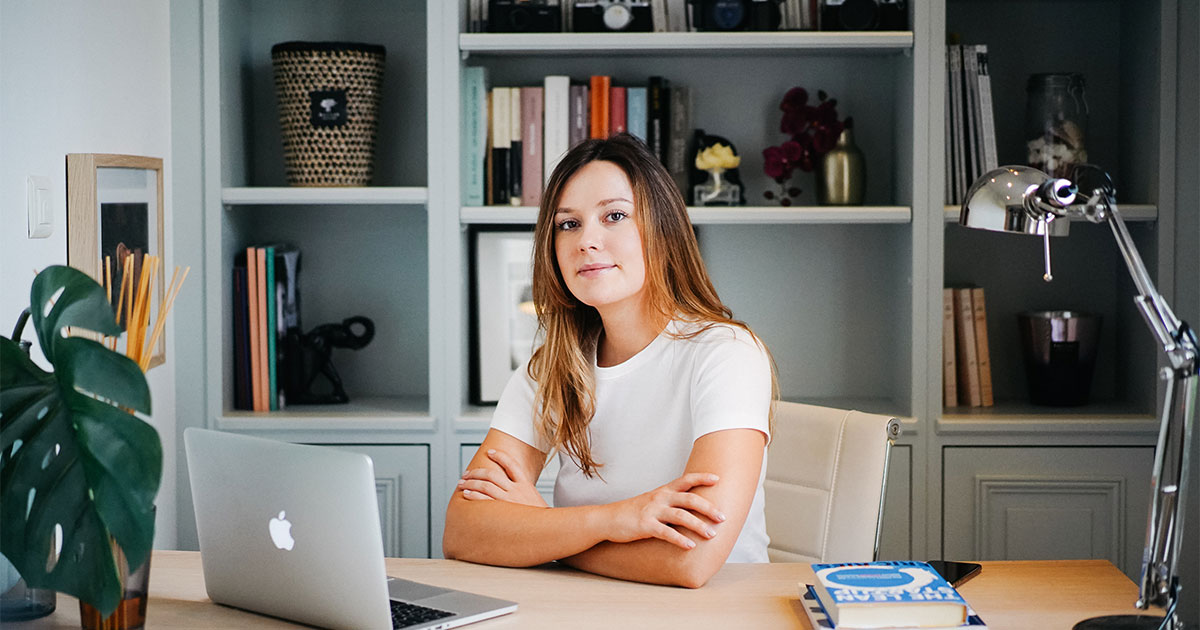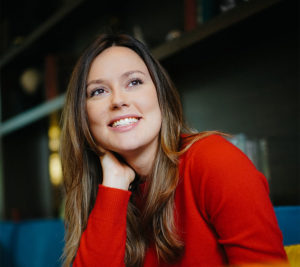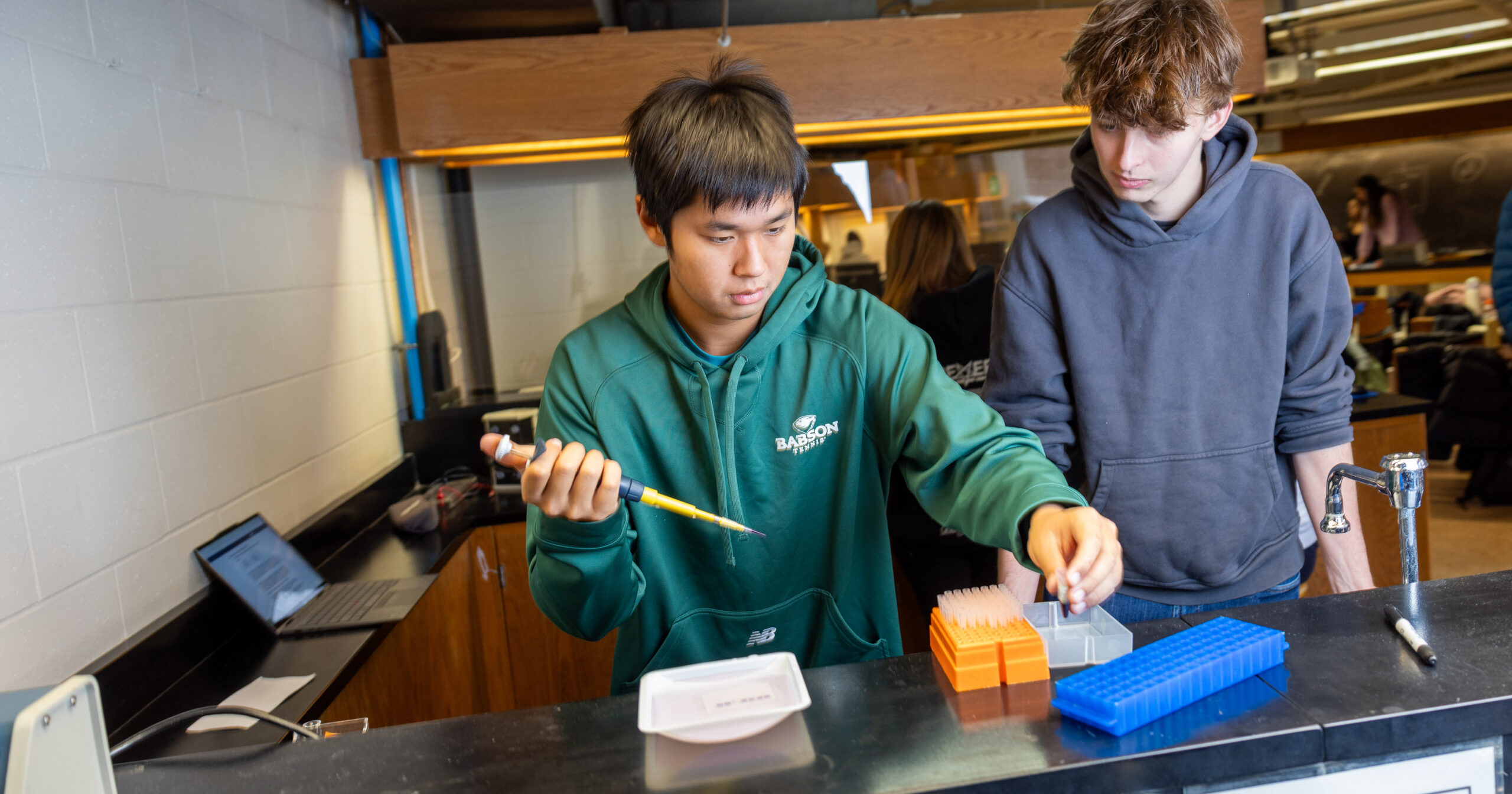How a Breakup Spurred a New Venture

Laid up in bed, Juliette Swann MSEL’19 had a lot of time to think.
She recently had broken up with her boyfriend of five years, a man she came to realize didn’t truly listen or understand her. The relationship wasn’t healthy. “I accepted a lot of things I shouldn’t have,” she admits. “I was not happy.”
Then, only two weeks after the breakup, she fell off a horse while riding and landed badly, breaking a vertebrae. Two surgeries, and two months in bed, followed the accident. Left alone with her thoughts, she reflected on the last five years, on the choices she had made.
“I was in my bed and thinking of how I ended up in this situation,” she says. “It made me realize the impact a partner can have in your life. Choosing the right person for you is key for your happiness.”
That reflection led to a business idea for a new type of dating app that could help others make better decisions about their romantic lives. That idea would change Swann’s life, leading her away from the corporate jobs she been working and taking her down an entrepreneurial path that would eventually lead her to Babson.
“For me, it was a rebirth,” she says.
Don’t Judge a Book by Its Cover
Swann is the founder and CEO of Birdy, a dating app that emphasizes personality and compatibility rather than the more superficial, picture-heavy approach of other dating sites. “You can be blinded by physical appearance,” Swann says. “That is not the most important thing in a relationship. It is not a key to happiness in the long term.”

Juliette Swann MSEL’19 is the founder and CEO of the dating app Birdy.
Birdy users first take a personality test, inspired by the widely used Myers-Briggs Type Indicator. After her breakup, Swann and her friends took a lot of personality tests in trying to understand themselves, their exes, and why their relationships didn’t work. With Birdy, test results are used to match users with people they are compatible with.
Before users see pictures of their matches, however, they first view each other’s “storybooks,” which essentially are profiles in which people talk about their passions and values, share memes, and upload pictures (but not of themselves). Only after both parties agree to move forward are their selfies finally revealed.
Swann says that 60 percent of Birdy users are women. “The whole experience makes it feel a lot less objectifying,” Swann says. Additionally, 75 percent of users identify as introverts. “They really love Birdy. It’s slower. It’s deeper,” Swann says. “Users can take the time to have a conversation.”
Ask the Hard Questions
Swann worked on Birdy during her entire time at Babson and launched the venture last summer while living in San Francisco. (Today, she temporarily lives in her native France, having returned home during the pandemic.)
Already experiencing much growth, Birdy has been downloaded 70,000 times to date, and it has about 20,000 monthly users, resulting in a slew of successful love stories. The venture is initially focusing on the West Coast, with the most users so far found in Los Angeles.
“I was very passive. I was following a path that everyone was following. I think it happens to a lot of people. They don’t focus on themselves and what they really want.”
Juliette Swann MSEL’19
That such success came out of the pain of her relationship and subsequent accident is not lost on Swann. “I’m grateful for both those events,” she says. The heartbreak and hurt she felt at that time led her not only to take stock of her romantic life but also her career. “The shock of an accident or something bad that happens in your life, it makes you care about nothing else but yourself and your happiness,” she says.
Before Birdy, Swann worked jobs in finance and communications, but her career choices felt safe and not thought out. “I was very passive. I was following a path that everyone was following. I wasn’t really thinking,” she says. “I think it happens to a lot of people. They don’t focus on themselves and what they really want.”
She had a notion to start her own business but never acted on it. “I always wanted to be an entrepreneur, but my confidence was low, especially during that toxic relationship,” she says. After the breakup, she finally took time to really question her life’s direction, and she recommends others to do the same. New possibilities potentially await those who do.
“We don’t take the time to do an introspection, to ask ourselves the hard questions,” she says. “The introspection part of your life needs to happen.”




